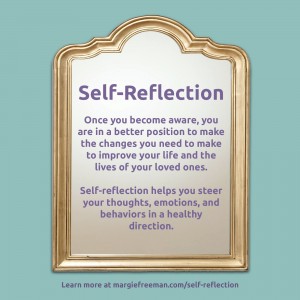 We have just entered the new year (5774) in the Jewish calendar. For many, it is also the beginning of a new school year. According to Jewish tradition, the 10 days between Rosh Hashanah (the New Year) and Yom Kippur (the Day of Atonement), should be used to self-reflect and to find ways to improve oneself.
We have just entered the new year (5774) in the Jewish calendar. For many, it is also the beginning of a new school year. According to Jewish tradition, the 10 days between Rosh Hashanah (the New Year) and Yom Kippur (the Day of Atonement), should be used to self-reflect and to find ways to improve oneself.
Self-reflection serves a very important function: to help us better ourselves, which affects all aspects of our lives. Elements of self-reflection include self-awareness, self-exploration, and self-acceptance. Self-acceptance is actually the first step toward self-improvement.
To begin self-reflection, ask yourself “how” questions rather than “why” questions. For example, ask yourself “How can I be a better partner?” rather than “Why can’t I be a better partner?” Ask yourself “How can I spend more quality time with my family?” rather than “Why can’t I find more time for my family? “ Reflect on “How can I find more time for physical fitness and self-care?” rather than “Why can’t I find time to exercise?”
As you self-reflect, you look within to get a clear picture of your thoughts, emotions, beliefs, and behavior. Through this process, you can more easily see your true thoughts, feelings, and motivations. Once you become aware, you are in a better position to make the changes you need to make to improve your life and the lives of your loved ones. Self-reflection helps you steer your thoughts, emotions, and behaviors in a healthy direction.
In the process of self-reflection, be truthful to yourself. Once you find an answer, make a decision to act, and commit yourself to your decision. Whether for the Jewish New Year or for the new school year, self-reflection is the first step on your journey toward becoming the best self that you can be.